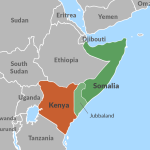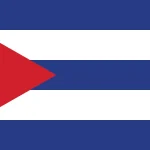More than 183 million Gmail-linked passwords exposed
The leak appears to have resulted not from a direct breach of Gmail or Google LLC’s systems, but rather from malware-infected devices.
Trump order: Google to change map names for Gulf of Mexico and Denali
This order mandates the renaming of several prominent United States geographical features, including reverting Denali to Mount McKinley and renaming the Gulf of Mexico to the Gulf of America.
Google launches new UI/UX for workspace apps
Tech giant Google is rolling out a new design for its workspace apps (Google Docs, Sheets, Slides, and Drive). The company is making it easier for techies to enjoy the workplace with a new simplified user interface, brilliant redesign reducing clutter
Adam Levine tops Most-Googled Musicians and Bands list of 2022
American singer-songwriter Mary J Blige comes in second on the list.
Ari Lennox shares full version of song made for Black business ‘Grounded’ in conjunction with Google
A clip of the song debuted as a jingle connected to a Black-owned business of the same name.
























